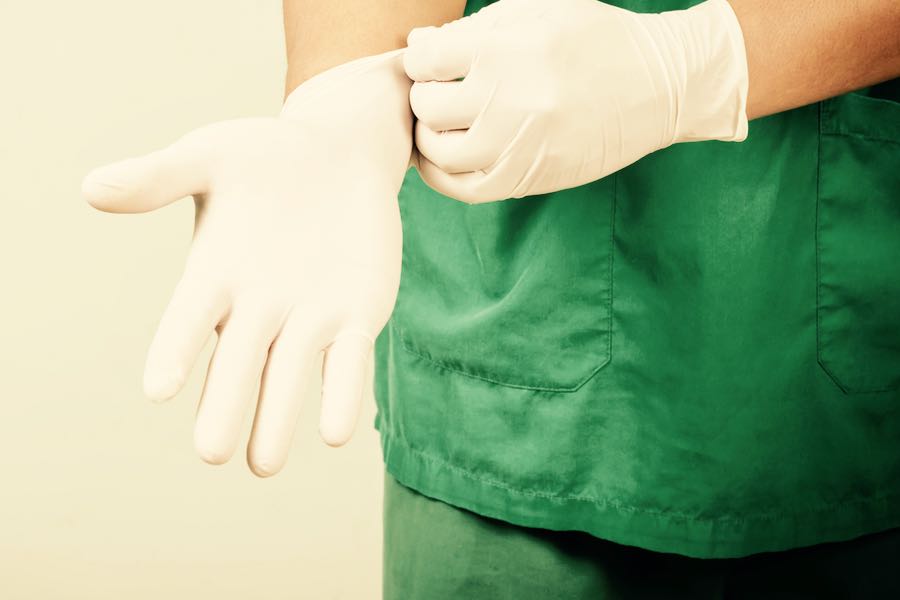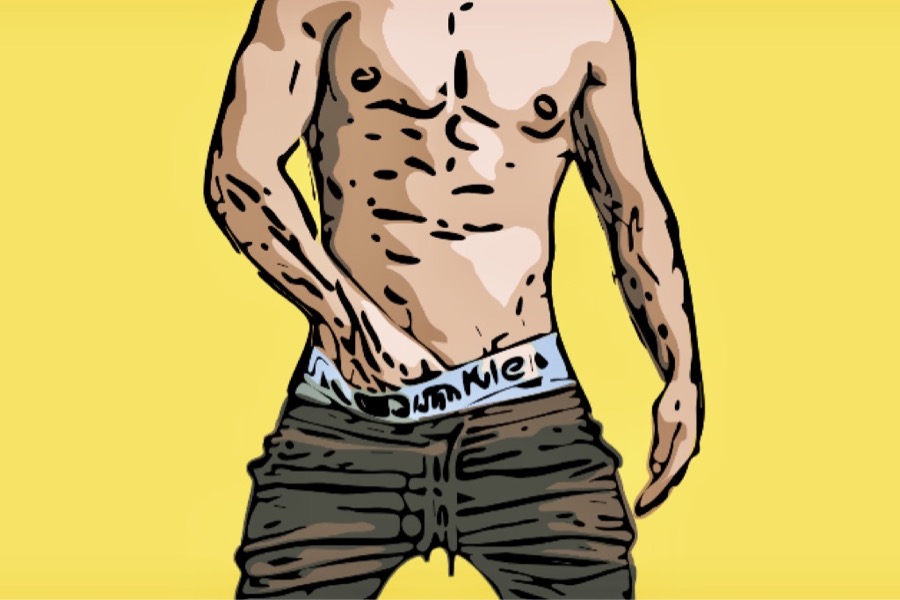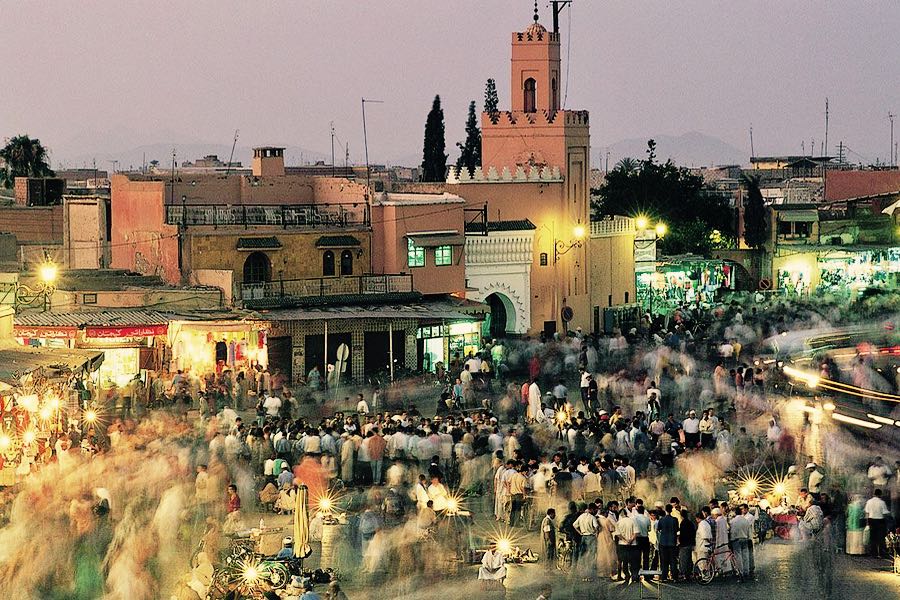Bradley Secker (website) is a British indipendent photojournalist now based in Antakya, Turkey. His pictures and interviews tell stories of real people, giving a face to those countries (Iran, Syria, Turkey, Bangladesh, Palestine…) that would otherwise remain exotic names for quick news headlines or for experts in geopolitics. The dramatic political and social events of this vast area of the world provide the framework for these stories and derive from them a deeper, more human sense. Il grande colibrì spoke with him of his reportages on homosexuals in the Middle East and of human rights violations that he continues to document.
In your documentary “Iraq’s unwanted people”, you presented some gay men who escaped from Iraq to refuge in Syria. They escaped from the dreadful situation homosexuals are experiencing in Iraq…
Il grande colibrì, with the important report of your collaborator Anas from Baghdad, highlighted an important and often overlooked consequence of the new Iraq, the discrimination, violence, and murder of homosexuals. In my short multimedia piece, “Iraq’s unwanted people”, I tried to tell the tale of those that managed to escape the country, to Syria, and the waiting and life they were leading there.
 What are their most common stories?
What are their most common stories?
The most common stories amongst the Iraq men were tales of fear, discrimination and violence not only from their families, but the community, and armed militant groups too.
Apart from the doc, you realized some great pictures…
In late 2010, when I met a large group of gay Iraqi men living in Damascus, Syria, I photographed and interviewed only those that had left Iraq due to their sexuality or gender identity, and not those who left for other reasons and happened to be LGBT, of which there were many.
Which problems did those men face in Syria?
For gay Iraqi men in Syria at that time, the situation was still very unclear. The majority of the men were registered with the United Nations High Commissioner for Refugees (UNHCR) for resettlement overseas, although not all of them had felt comfortable disclosing the true reason for their escape from their home country, for many reasons, which may have had implications on their files when sent to the embassies of countries willing to resettle. Homosexuality was illegal in Syria at that time, and remains so to today, but it’s not illegal in Iraq, in a kind of sad irony.
 Which were their dreams, their hopes?
Which were their dreams, their hopes?
From spending several months talking to the men, and becoming close to the community, I felt that their hopes were mostly to be able to return to Iraq and live their lives, or to be able to continue that in Syria. The men, of course missed their families, friends, and country, and felt nervous about what the future would hold. Unable to work legally in Syria, most of the men had to work underpaid, hard jobs in order to pay rent, and the endless waiting and lack of information about the future was taking a severe psychological toll on them.
Other Iraqi gays, but also Iranian ones, have sought refuge in Turkey. You photographed them too…
Yes, I have interviewed and photographed many Iranian LGBT people now living in Turkey, and waiting for resettlement from here, as well as some of the Iraqi men who first fled to Syria, and came to Turkey to escape the escalating violence, and lack of security at the beginning of the Syrian uprising against the government in 2011 and 2012.
Is their situation better there? Do they receive some help?
I’m not sure whether the situation is better for LGBT refugees in Turkey, as they are still not allowed to work legally, and are displaced to small cities in the centre of the country, unable to live in Istanbul, Ankara or Izmir, bigger, western cities that have a considerable gay community and gay lifestyle. Refugees must register at the police station each week, sometimes up to three times per week. One of the benefits for those in Turkey, over Syria, is that homosexuality is not criminalised in the country, although there is still a social stigma about LGBT people, and numerous violent and fatal attacks.
 The UNHCR has been known to help the refugees financially, but this is very rare, and I found out recently, that an Iranian gay man was refused resettlement, as the agency didn’t believe his story, and that he had to leave Iran due to his homosexuality and his lifestyle. It’s not easy in any way, although each community has formed together in these small cities around Turkey, so at least there is a sense of community.
The UNHCR has been known to help the refugees financially, but this is very rare, and I found out recently, that an Iranian gay man was refused resettlement, as the agency didn’t believe his story, and that he had to leave Iran due to his homosexuality and his lifestyle. It’s not easy in any way, although each community has formed together in these small cities around Turkey, so at least there is a sense of community.
Reporting the lives of LGBT refugees in the Middle East is extremely interesting and important, but very difficult, isn’t it?
It’s important for me, and yes, it can be difficult, but if you approach the community with a clear agenda about your aims, details of the project, and honesty, people are very accepting and open.
How do you come into contact with these people? Are they eager to tell their stories or afraid to do so?
I usually meet people through a network of activists and friends, and the network extends from there. It takes a long time for sure, and at first many individuals are weary about the idea of being photographed, interviewed, or known. I have many interviews from people that don’t want to be photographed, and also many photographs that don’t show the identity of the person.
 How do the western media receive your reportages? They usually seem so uninterested in these issues…
How do the western media receive your reportages? They usually seem so uninterested in these issues…
The western media haven’t shown so much interest so far, although many of the images have been published in the UK, the Netherlands, and Spain. I think that European and north American media would prefer to see orientalist images from the region, and victimise the subjects, rather than seeing them as very similar, familiar and strong people, that’s my personal opinion. It’s mostly LGBT publications that are interested in the reportages, unless there is specific news on the subject, it seems like the media aren’t so interested.
How is the situation for Turkish LGBTs?
Homosexuality is legal in Turkey, and LGBT life can be open and free in certain places, but these places are limited to big cities in the west of the country. The Turkish military doesn’t accept homosexual/transgender men to enrol to conscription, and require degrading photographs of the individual being anally penetrated, smiling, and looking at the camera, followed by a medical examination. Clearly LGBT people aren’t accepted as socially or culturally equal in society.
And what about Kurdish LGBTs?
Kurdish LGBT people have a joint struggle from my experience. They are fighting to gain acceptance from the LGBT movements in cities such as Istanbul and Ankara, but often fail to get much financial or moral support as they are Kurdish, and there is a fear of helping them. On the other side, LGBT Kurds in Turkey try and join the fight with the Kurdish political movements, but fail to gain acceptance due to their LGBT identities. They are pushing a third way, with Kurdish women, and other minority groups in the eastern region, but it’s not easy.
 In your website our readers can see a beautiful gallery about illegal immigration from Turkey to Greece. European Union always presents itself as a careful teacher about respect for human rights in other countries, but it becomes a bad apprentice when it has to welcome the ones who run away from war or persecution. Meanwhile, in many European countries, xenophobic parties, such as Golden Dawn in Greece, have good results. It seems that it’s harder and harder for European citizens to recognize other people’s humanity in the faces and pictures of migrants. Which role can photographers and photojournalists have, to face this challenge?
In your website our readers can see a beautiful gallery about illegal immigration from Turkey to Greece. European Union always presents itself as a careful teacher about respect for human rights in other countries, but it becomes a bad apprentice when it has to welcome the ones who run away from war or persecution. Meanwhile, in many European countries, xenophobic parties, such as Golden Dawn in Greece, have good results. It seems that it’s harder and harder for European citizens to recognize other people’s humanity in the faces and pictures of migrants. Which role can photographers and photojournalists have, to face this challenge?
This is a tough question, and I don’t think that photographers or photojournalists are able to change the minds of members of right-wing extremist, anti-immigration groups such as those you mentioned, and I don’t think that photography is about persuading or agendas. It’s about documenting the reality. Of course it’s vitally important to document the reality of what’s happening around the world, and in the EU regarding illegal migration, but I don’t think that the photographer is able to stop hardline movements on either side.
Which projects are you actually working at? Which stories will you tell with your future reportages?
I’m currently based in southern Turkey, and have been in the country for over a year now. I’m currently working on many stories in and around Syria, and the civilians caught in the conflict, the ramifications of the fighting, politics and lack of humanitarian supplies, etc. I’m also continuing to document the lives of LGBT people in the region when I’m not working on assignments, but it’s been difficult to find the time and funding in recent times. There are several parts to the LGBT project that I have in mind, and I just need to secure funding, or publication in order to shoot them. For the future, I’ll be based in this region for the coming year, working on a mixture of commercial and editorial assignments, as well as personal work.




